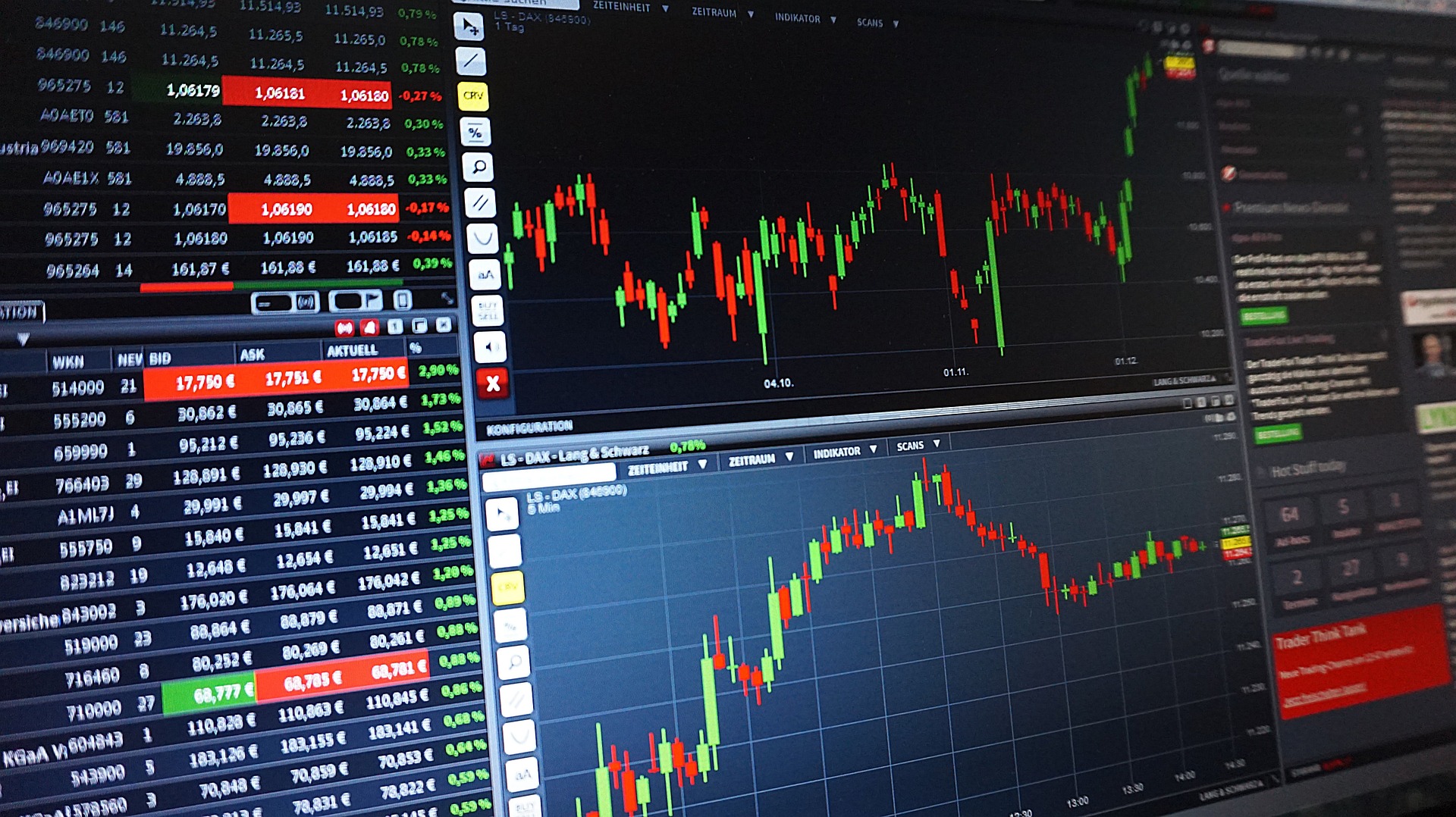In 2016, the United Kingdom’s decision to leave the European Union sent shockwaves through the global political and economic landscape. The implications of this historic event, known as Brexit, continue to unfold, with the forex market being one of the most impacted areas. This article examines the impact of Brexit on major currency pairs, analyzes the market volatility it triggered, and explores the ongoing economic and political uncertainties that continue to influence foreign exchange rates in the wake of this momentous decision.
Pre-Brexit Market Dynamics
Before the Brexit referendum, the Forex markets operated in a relatively stable environment. Currencies of the UK and EU member states experienced moderate fluctuations, largely influenced by economic data releases, central bank policies, and global market trends. Traders and investors navigated these markets with confidence, relying on established trading strategies and risk management techniques.
However, underlying this apparent stability was an undercurrent of uncertainty surrounding the Brexit negotiations. While the referendum was held in June 2016, the actual process of exiting the EU and negotiating the terms of withdrawal took several years. During this period, market participants closely monitored developments, anticipating potential impacts on trade agreements, regulatory frameworks, and economic stability. This anticipation of uncertainty created a sense of caution among investors, leading to occasional spikes in volatility and fluctuations in currency values.
Immediate Effects of Brexit Announcement
Following the announcement of Brexit, the Forex markets experienced immediate and pronounced effects, reflecting the shock and uncertainty surrounding the decision. These effects included:
- Currency Volatility: Major currencies, such as the British Pound (GBP) and the Euro (EUR), witnessed significant volatility immediately after the announcement. Sharp fluctuations in exchange rates occurred as traders reacted to the unexpected news, adjusting their positions accordingly.
- Flight to Safety: Investors sought safe-haven assets, such as the US Dollar (USD) and gold, in response to heightened uncertainty. This flight to safety led to a temporary surge in demand for these assets, influencing their prices in the Forex markets.
- Market Disruption: The sudden announcement of Brexit disrupted normal trading patterns and strategies. Traders scrambled to reassess their positions and gauge the potential impact of Brexit on global markets, leading to increased market activity and volatility.
- Impact on Cross-Border Trade: Businesses engaged in cross-border trade faced immediate challenges and uncertainties following the Brexit announcement. Concerns over future trade agreements and regulatory changes prompted companies to reevaluate their supply chains and investment decisions, affecting currency flows in the Forex markets.
Overall, the immediate effects of the Brexit announcement on Forex markets underscored the profound impact of geopolitical events on currency values and market sentiment. Traders and investors grappled with heightened uncertainty and volatility, adjusting their strategies to navigate the evolving landscape.
Long-Term Impact on Currency Values
- British Pound (GBP): The GBP experienced significant fluctuations in the aftermath of Brexit, reflecting uncertainties surrounding the UK’s future relationship with the EU. Over the long term, the GBP’s value against other major currencies, such as the USD and EUR, may be influenced by factors such as trade agreements, economic growth, and inflation rates.
- Euro (EUR): The Eurozone, comprising countries within the EU, also felt the effects of Brexit on the EUR. Concerns over the stability and cohesion of the EU, coupled with potential disruptions to trade and economic growth, could impact the EUR’s value against other currencies.
Shifts in Exchange Rates:
- GBP/USD Exchange Rate: The GBP/USD exchange rate witnessed considerable volatility following Brexit, reflecting uncertainties surrounding the UK’s economic prospects and its trading relationship with the US. Long-term trends in the GBP/USD exchange rate may be influenced by factors such as interest rate differentials, economic performance, and geopolitical developments.
- GBP/EUR Exchange Rate: The GBP/EUR exchange rate is closely tied to the dynamics between the UK and the Eurozone. Brexit negotiations and the outcome of future trade agreements will play a crucial role in determining the long-term trajectory of the GBP/EUR exchange rate, with potential implications for businesses and investors operating in both regions.
The long-term impact of Brexit on currency values extends beyond immediate fluctuations, shaping the fundamental dynamics of Forex markets over time. As negotiations unfold and trade agreements are renegotiated, currency values may continue to be influenced by evolving economic and geopolitical factors. Investors and traders must remain vigilant, adapting their strategies to navigate the uncertainties and capitalize on emerging opportunities in the post-Brexit landscape.
Economic Factors Influencing Forex Post-Brexit
| Economic Factors | Description | Impact on Forex Markets |
| Trade agreements | Negotiations between the UK and EU | Uncertainty affects currency valuations |
| Tariffs | Imposition of tariffs on imports/exports | Disruptions to trade flows and currency values |
| GDP growth | Economic performance of the UK and EU | Strength or weakness of currencies |
| Inflation rates | Changes in consumer prices | Influence on central bank policies |
Economic factors play a crucial role in shaping Forex markets post-Brexit. Here are some key factors to consider:
- Trade agreements: The renegotiation of trade agreements between the UK and the EU, as well as with other countries, can introduce uncertainties that impact currency valuations.
- Tariffs: The imposition of tariffs on imports and exports can disrupt trade flows and affect the value of currencies involved in international trade.
- GDP growth: The economic performance of both the UK and the EU will influence the strength or weakness of their respective currencies in Forex markets.
- Inflation rates: Changes in consumer prices, as indicated by inflation rates, can influence central bank policies and, in turn, affect currency values.
Understanding these economic factors is essential for Forex traders and investors seeking to navigate the complexities of the post-Brexit landscape and make informed decisions in currency markets.
Policy Responses and Central Bank Actions
Policy responses and central bank actions play a crucial role in shaping the Forex markets post-Brexit. Here are some key actions and responses to consider:
- Monetary policy adjustments: Central banks, including the Bank of England and the European Central Bank, may adjust monetary policies in response to changes in economic conditions and market uncertainties post-Brexit.
- Interest rate decisions: Changes in interest rates can have a significant impact on currency values and market sentiment. Central banks may raise or lower interest rates to stimulate economic growth or combat inflation, influencing Forex markets accordingly.
- Intervention strategies: Central banks may intervene in currency markets to stabilize exchange rates or address excessive volatility. Intervention strategies can include buying or selling currencies to influence their values relative to other currencies.
- Communication strategies: Central banks often use communication tools, such as press conferences and policy statements, to signal their intentions and provide guidance to market participants. Clarity and transparency in communication can help mitigate uncertainty and support market stability.
Understanding the policy responses and actions of central banks is essential for Forex traders and investors seeking to anticipate and navigate the impact of Brexit on currency markets.
Brexit’s Influence on Forex Trading Strategies
Brexit’s influence on Forex trading strategies is significant, prompting traders to adapt their approaches in response to evolving market dynamics. This influence can be examined through two main aspects:
Market Volatility
The uncertainty surrounding Brexit negotiations and the eventual outcome has led to increased volatility in currency markets. Traders may adjust their trading strategies to account for heightened volatility, implementing risk management techniques to mitigate potential losses and capitalize on market opportunities.
Fundamental Analysis
Brexit has introduced new economic and geopolitical factors that impact currency values. Traders may incorporate fundamental analysis into their trading strategies, closely monitoring developments such as trade negotiations, economic indicators, and central bank policies to make informed trading decisions.

